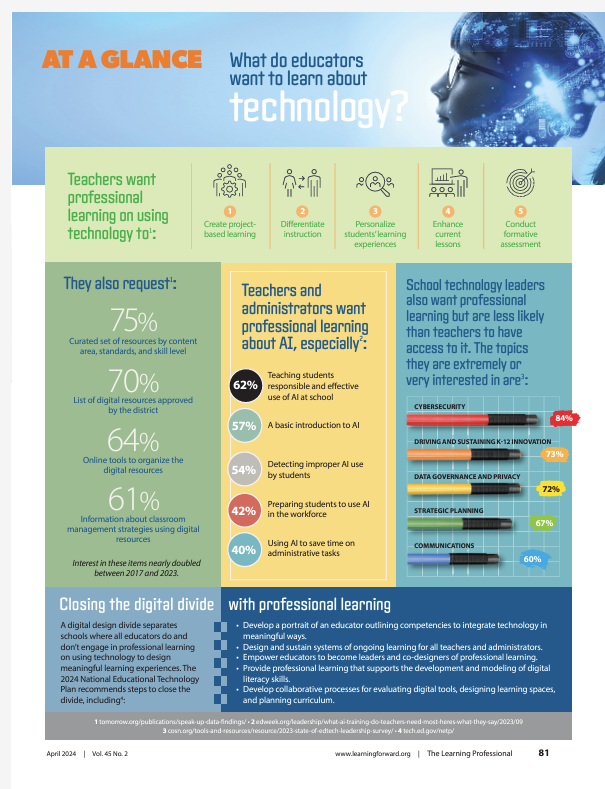OTAN News
Building Educator Digital Capacity
Going beyond access to devices and technology is the high level of quality professional learning critical to a technology initiative. Whether in a rural, urban or suburb, the condition of success in any agency is a culture of collaborative inquiry.
According to the latest U.S. Department of Education’s webinar, Closing the Digital Divide in Rural Communities link, passcode $K#2ce2t, rural agencies who developed a cross collaboration with other rural districts could discover what is possible and how to make a change for students. The “superpower” of rural agencies is the kind of agility in changing their processes because there aren’t as many levels as possible of decision making as there are in urban districts.
In contrast there are similar needs for urban districts to adopt as well. Some of the following recommendations for both settings come from the National Ed Tech Plan:
- Develop a “profile of a Learner/Graduate” outlining cognitive, personal and interpersonal competencies.
- Support the development of those competencies through the active use of technology.
- Empower with feedback for learners to become “co-designers of learning experiences.”
- Develop rubrics for digital resource and technology adoption to ensure that tools are accessible and integrated into the larger educational ecosystem, that they support Universal Design for Learning (UDL) principles, and that they can be customized in response to accommodation or modification needs of learners with disabilities. (States, Districts, Building-Level Administrators)
- Review subject area curricula or program scopes and sequences to ensure that student learning experiences build age-appropriate digital literacy skills through active technology use for learning. (States, Districts)
- Build public-private partnerships with local businesses, higher education institutions, and nonprofit organizations to help students access edtech-enabled hands-on learning and work-based learning experiences. (States, Districts)
- Provide professional learning and technical assistance to district leaders, building-level administrators, and educators to support the use of evidence to inform edtech use. (States, Districts)
- Develop guidelines for emerging technologies which protect student data privacy and ensure alignment with shared educational vision and learning principles. (States, Districts)

Resources
Learning Forward Standards for Professional Learning

